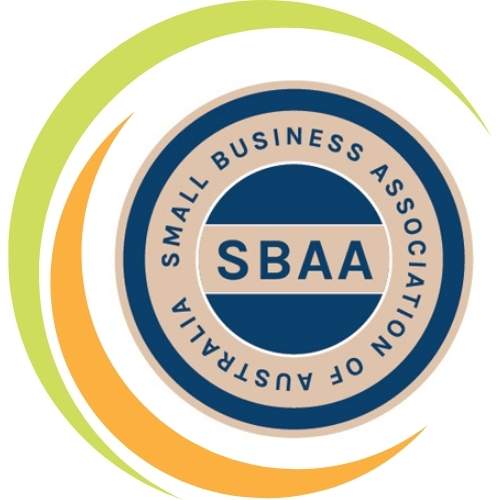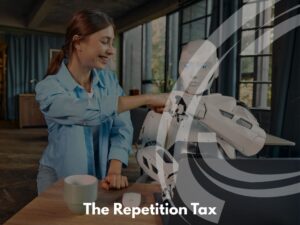The Quiet Superpower, Mobilised: How a Small Business Voice Can Steady Australia and Set the Agenda
Lead, what you are part of right now
You are not reading this in isolation. When you subscribe to SBAAS newsletters, your voice is counted. Our polls turn lived experience into measurable signals. Those signals travel. They shape submissions and briefings. They inform public commentary. They guide how we present the small business political voice to ministers, MPs, mayors and senior officials.
Our Managing Director sits on the Small Business Association of Australia’s Think Tank. He brings the weight of your survey responses into structured discussions with national impact. He also advocates daily to the federal, state and local governments for small businesses across all industries, including small charities and not-for-profits. We do this while delivering paid engagements for clients. We also devote time freely to lift conditions for small enterprises.
The goal is simple: a small business voice that is heard early and clearly, so practical solutions rise and noise falls.


The headline truth
Small business is not a side stage. It is the main act. Millions of Australians rely on micro to small enterprises for jobs, income and training. That scale makes the small business political voice a decisive force in our democracy.
When that voice fragments, politics drifts. When that voice unifies, politics listens. The aim of this article is clear. Understand your scale. See your shared interests. Recognise that a focused small business political voice can stabilise government and calm the noise that drowns out practical solutions.
This is not a blueprint to form a party. It is not a campaign plan. It is a reminder of scale and a case for unity of purpose.
What “one in three” really means
Think in people, not slogans. Micro to small enterprises employ well over five million Australians. The labour force sits a little above fifteen million. That means roughly one in three workers earns a living in a small enterprise. Add owner‑operators and contractors, and the reach of small enterprise grows further.
This reach exists in every electorate, city and region. It exists in the trades, care, hospitality, professional services and the arts. It touches families, volunteers and suppliers. A small business political voice is present wherever Australians live and work. It does not need to shout. It needs to speak together.
Why unity is strength, and fragmentation is weakness
Politics rewards clarity. Big sectors, when united, set agendas. Small business has the numbers, yet too often not the coherence. Many groups exist, and many do good work. But governments hear twenty positions and see no single mandate.
A small business political voice changes that calculus. One voice, one short list of shared priorities, one message repeated. Ministers stop guessing which view is the real one. Officials stop playing for time between conflicting demands. Committees stop shopping for answers. A small business political voice becomes a stabilising anchor, not a complaint line.
Unity does not erase diversity. It concentrates power. It tells the government what is non-negotiable and what is open to design. It keeps the focus on outcomes, not headlines.
The stabilising effect on the government
Our politics is noisy. Culture fights crowd out bread‑and‑butter reforms. A unified small business political voice cuts through that noise. It brings a practical yardstick to policy. Will this lift hiring and training in small firms, or will it slow them down? Will this reduce delays and red tape, or will it add steps and costs?
When the government can test ideas against one credible yardstick, decisions speed up. Compromise gets easier. Permanent staff get clearer direction. Confidence grows across the economy. Voters see outcomes, not arguments. That is how the small business political voice reduces division and softens the extremes that feed on confusion.
Stability is not about favouring one party. It is about predictable rules that last beyond a single term. A small business political voice that speaks for millions makes durable settlements more likely.
How a unified voice shapes the agenda
A strong small business political voice controls what gets airtime. It tells the country what matters first. It also limits drift into boutique debates that do not affect most working Australians. With discipline and focus, a small business political voice can:
- Set the order of parliamentary debate.
- Narrow sprawling bills to the parts that impact employers and staff.
- Call out regulation that adds cost without a clear public benefit.
- Highlight rules that block digital adoption, skills growth or tender access.
- Keep attention on payment times so cash flow improves across supply chains.
- Protect new apprenticeships and practical pathways to real jobs.
None of this requires a party. It requires a clear signal that millions of votes and livelihoods align on a short list of priorities. That is the force of a small business political voice.
Elections and leverage, if everyone voted independent
Consider a thought experiment. In the next federal or state election, every micro to small business owner and employee gives their first preference to credible independents. Preferences then flow to the major parties based on who signs up to practical commitments that matter to small firms and small charities.
What happens. Margins narrow in dozens of seats. New crossbenchers emerge in suburban, regional and inner‑metro divisions. Negotiations become more practical and less theatrical. The centre of gravity shifts toward delivery on payment times, procurement access, skills and simpler rules. A small business political voice becomes visible in the count, not just audible in a consultation.
Now consider the more likely outcome, which is just as powerful. Owners and employees do not all vote independent. They simply make clear, through a measured small business political voice, that they could. They signal that preferences will follow performance against a short, public checklist. That credible threat focuses minds in party rooms. It shortens the distance between promise and policy. It leaves little room for hyperbole, vitriol, avoidance and deflection, because the consequences show up seat by seat.
A small business political voice does not need to win every contest. It needs to be decisive in enough contests to guide priorities. The possibility of a swing toward independents is the lever. The lever works because it is believable.
The power of a credible threat
Politics responds to credible threats and reliable rewards. A unified small business political voice offers both. It promises support for proposals that clear a simple test, help small employers and small charities hire, train and invest. It withholds support when proposals fail that test. It leaves options open for independents when the major parties drift from practical outcomes.
This is not combative for the sake of it. It is disciplined. It creates a race to the top on what matters. It reduces space for exaggerated claims, outrage cycles and strategic distraction. It rewards good faith and transparency. It punishes delay and deflection. Importantly, it gives both sides a path to succeed on merit.

If small business disappeared tomorrow
Sometimes the cleanest way to see power is to imagine its absence. If micro to small businesses closed tomorrow, Australia would face a shock unlike anything in living memory.
- Jobs would vanish. More than five million roles would stop at once. Unemployment would surge. Underemployment would follow as larger firms failed to absorb the sudden slack.
- Output would plunge. Small business produces about one-third of the private‑sector value added in measured industries. Supply chains would break within hours. Supermarket shelves would thin. Construction schedules would blow out. Clinics and allied health services would cancel appointments.
- Training would stall. A large share of apprentices and trainees start in small firms. Close that pipeline, and skill shortages would escalate. The trades and services that keep the country running would hit a wall.
- Revenue would collapse. GST, company tax, PAYG and payroll taxes would fall sharply. Emergency payments would rise quickly. Budgets would be rewritten in days, not months.
- Communities would fray. Regional towns would lose anchor businesses. City neighbourhoods would lose trusted local services. Sporting clubs and charities would lose sponsors and volunteers. Social capital would weaken.
This is not a scare tactic. It is a mirror. The country depends on micro and small enterprises. The small business political voice carries the weight of this reality into every conversation we have with government. It says, with evidence, that decisions about compliance, payments, procurement and training have immediate, human effects.
Why many voices can be ignored, and one voice cannot
Ministers and departments receive hundreds of submissions. They hear from associations, consultancies, unions and large corporates. When a small business sends twenty different messages, officials hear noise. When the small business political voice sends one message on the big issues, officials hear a mandate.
One voice does not erase diversity. It concentrates power. It sets a common baseline, faster payments, simpler rules, fair access and practical skills. It leaves room for industry detail inside that baseline. It keeps negotiations honest, and it stops old ideas from being reheated without proof.
Compliance and clarity
Compliance is not a slogan. It is hours and dollars. Micro to small firms and small charities feel every extra step. A disciplined small business political voice can make simple questions non-negotiable:
- What problem does this rule solve, and how will we measure it?
- What is the cheapest way to solve it without shifting risk?
- Can we reuse data rather than re-enter it?
- How much time will this take for a micro business or small charity each month?
- Will the guidance be in plain English, not legalese?
When these questions become habit, the default changes. Policy starts from user time, not system convenience. Costs fall, trust rises, and decisions speed up.

Payment times and cash flow
Late payment is a hidden tax on small enterprises and small charities. It forces owners and managers to fund larger players and agencies. A united small business political voice keeps payment reform on every agenda. It demands transparency on the days‑to‑pay. It treats on-time payment as the baseline, not a nice-to-have.
When payment culture improves, hiring becomes safer, investment easier, and services more stable. The effect across communities is immediate and positive. There is no need to shout. One clear message from a trusted small business political voice is enough.
Procurement that includes, not excludes
Public buying can nurture local capacity, or it can lock it out. The difference is in the design. A clear small business political voice presses for split tenders where sensible, simple pathways for micro firms and small charities, and practical reporting that shows who wins work, where, and why.
The result is better value for taxpayers, stronger regional economies and a pipeline for small suppliers and service providers. Large firms also benefit as supply chains become more resilient and responsive.
Skills and apprenticeships
A large share of apprentices and trainees begin in small firms. The workplace learning is real. The mentoring is close. The outcomes are durable. A strong small business political voice keeps this fact in view. It pushes for funding that follows tasks, not forms. It favours short, assessable units that map to real work. It backs training when and where small employers can use it.
The payoff is a deeper skills base across the economy, fewer delays on projects and better careers for young Australians. Small charities benefit too, since community services rely on practical training and steady pipelines of workers.
Small charities, the same pressures, the same small business political voice
Small charities and community organisations face the same pressures as small businesses. They manage payroll, compliance, procurement and cash flow. They navigate complex grant acquittals. They wait for funding decisions and payments that can arrive late. They often operate with thin reserves and heavy duty of care.
A strong small business political voice must include these organisations clearly. The issues align. Faster payment helps keep services running. Simple reporting frees time for delivery. Open procurement lets capable local charities compete. Clear guidance reduces risk and improves care. When small charities are heard inside the small business political voice, policymakers see the full picture of community impact.
The power of your subscription
About 60,000 people now receive SBAAS updates, and the number keeps rising. That list is not just an audience. It is a standing sample of the sector. When you answer a poll, you convert experience into evidence. Numbers open doors. Evidence wins arguments.
This is why our polls matter. They let us present the small business political voice as tested, not guessed. When we say a change speeds up approvals, we can show how many owners and managers told us so, and how the impact varies by industry and region. When we say a proposal adds hours of admin, we can prove it. That is persuasive. That is how the small business political voice moves policy.
Bringing it all together
Small business is Australia’s quiet superpower. It employs one in three workers. It anchors training, services and community life. It can calm our politics by making policy practical and predictable. It can control the national agenda by focusing debate on what matters most.
If owners and employees all voted independently, crossbenches would grow and many seats would flip. Even without that outcome, the credible possibility of coordinated independent voting forces both sides to focus on delivery. It leaves little room for hyperbole, vitriol, avoidance and deflection. That is the leverage of a disciplined small business political voice.
A bunch of solitary, angry people is easy to ignore. A focused, single-minded group of Australia’s largest employers, together with small charities that serve every community, is not. A unified small business political voice is the difference between noise and results.
Your role, and our promise
Your role is simple. Stay informed and keep contributing to the evidence base. When you answer an SBAAS poll, you grow the small business political voice that now includes around 60,000 subscribers, and you help aim it at the right targets. Share the newsletter with your team. Ask them to add their views.
Our promise is simple as well. We will keep turning your lived experience into clear, plain‑English briefings and submissions. We will keep carrying your small business political voice into the Small Business Association of Australia’s Think Tank. We will keep advocating to the government at all levels for small businesses and small charities. We will continue to deliver paid engagements with care and rigour, and we will continue to devote time freely to lift conditions for small enterprises. That is how we steady the economy together.
Call to keep learning, and to be counted
Join a national conversation that measures what matters. Subscribe to the SBAAS newsletter, take part in our polls and add your evidence to a growing base that leaders respect. If you want to know more about how we support businesses and charities like yours, explore our story and approach.
Learn more about SBAAS.
Sources
- Australian Bureau of Statistics. Labour Force, Australia, latest release. https://www.abs.gov.au/statistics/labour/employment-and-unemployment/labour-force-australia/latest-release
- Australian Bureau of Statistics. Australian Industry, latest release, employment by business size and methodology. https://www.abs.gov.au/statistics/industry/industry-overview/australian-industry/latest-release
- Australian Bureau of Statistics. Counts of Australian Businesses, including entries and exits, latest release. https://www.abs.gov.au/statistics/economy/business-indicators/counts-australian-businesses-including-entries-and-exits/latest-release
- Australian Electoral Commission. 2025 federal election enrolment statistics. https://www.aec.gov.au/Enrolling_to_vote/Enrolment_stats/national/2025-fe.htm
- Australian Small Business and Family Enterprise Ombudsman. Contribution to Australian Employment. https://www.asbfeo.gov.au/small-business-data-portal/contribution-australian-employment
- Australian Small Business and Family Enterprise Ombudsman. Contribution to Australian Gross Domestic Product. https://www.asbfeo.gov.au/small-business-data-portal/contribution-australian-gross-domestic-product
- National Centre for Vocational Education Research. Apprentices and trainees, latest publications. https://www.ncver.edu.au/research-and-statistics/publications/all-publications
- Organisation for Economic Co‑operation and Development. SMEs and entrepreneurship. https://www.oecd.org/en/topics/smes-and-entrepreneurship.html
- Australian Charities and Not‑for‑profits Commission. Australian Charities Report, latest release. https://www.acnc.gov.au/tools/reports/australian-charities-report

Eric Allgood is the Managing Director of SBAAS and brings over two decades of experience in corporate guidance, with a focus on governance and risk, crisis management, industrial relations, and sustainability.
He founded SBAAS in 2019 to extend his corporate strategies to small businesses, quickly becoming a vital support. His background in IR, governance and risk management, combined with his crisis management skills, has enabled businesses to navigate challenges effectively.
Eric’s commitment to sustainability shapes his approach to fostering inclusive and ethical practices within organisations. His strategic acumen and dedication to sustainable growth have positioned SBAAS as a leader in supporting small businesses through integrity and resilience.
Qualifications:
- Master of Business Law
- MBA (USA)
- Graduate Certificate of Business Administration
- Graduate Certificate of Training and Development
- Diploma of Psychology (University of Warwickshire)
- Bachelor of Applied Management
Memberships:
- Small Business Association of Australia –
International Think Tank Member and Sponsor - Australian Institute of Company Directors – MAICD
- Institute of Community Directors Australia – ICDA
- Australian Human Resource Institute – CAHRI
Our Consulting Services

Management Consulting
Compliance & Risk

Professional Writing Services
Consistency in Communication

Small Business Consulting
Sustainable Businesses

Start-ups
Set-up for Success
Further reading

Do You Need a Business Consultant or Just Better Execution?
Do You Need a Business Consultant or Just Better Execution? Every business reaches a point where progress slows. Revenue plateaus. Margins tighten. Teams stay busy,

Can a Business Consultant Replace an Internal Manager?
Can a Business Consultant Replace an Internal Manager? When a leadership gap appears, most businesses default to recruitment. The logic seems obvious. A vacant role

What Results Should You Expect From a Business Consultant?
What Results Should You Expect From a Business Consultant? Hiring a consultant is not an expense. It is a strategic investment in performance, clarity, and

Why Businesses Stall Without External Perspective
Why Businesses Stall Without External Perspective Capable leaders run capable businesses. They work long hours, understand their markets, and care deeply about performance. Yet many

The Repetition Tax
Every organisation pays a “repetition tax”, time lost to checking forms, reconciling data, drafting reports, and chasing missing details. You can reduce that tax by building AI that fits your workflows, your data, and your risk profile. This guide explains how to design custom AI systems for businesses that improve consistency and speed while keeping humans fully accountable.

How to Choose the Right Business Consultant for Your Business
How to Choose the Right Business Consultant for Your Business Selecting external expertise can be one of the most commercially significant decisions a business leader
SBAAS Events
What our clients are saying about us
Posted onTrustindex verifies that the original source of the review is Google. Eric and Trudi recently wrote a tender for me and the experience was amazing. I went into the process in a state of complete overwhelm. Eric was able to break it down into achievable chunks for me, and reassure me that I had a great service and business model to offer. I came out the other end of the process with all of my business policies, a better understanding of my offer, and a foundation to launch all future tender applications. Eric took all of my information and turned it into a pretty package that I could market.Posted onTrustindex verifies that the original source of the review is Google. SBAAS were fantastic to work with on a detail-heavy tender with a tight turnaround. Their team helped us shape and compile our content to deliver a strong, high-quality submission. Highly recommend SBAAS to anyone looking for strategic support with tender development, with a touch of good humour along the way.Posted onTrustindex verifies that the original source of the review is Google. We engaged SBAAS to support the development of a complex government tender and couldn’t be happier with the outcome. SBAAS' professionalism, attention to detail, and ability to quickly understand our business and translate that into a compelling, well-structured submission were exceptional. They were responsive, collaborative, and a genuine extension of our team. Highly recommend for anyone looking for strategic, high-quality bid and tender writing support.Posted onTrustindex verifies that the original source of the review is Google. Eric and Team go above and beyond. They do an excellent job with researching to get everything that is legally required for Policies and QMS. Would recommend them them to everyone especially all the bookkeepers and accountants. Thank you guys, and extreme job. Love you work as always. 😀Posted onTrustindex verifies that the original source of the review is Google. Extremely professional and far exceeded by expectations. I will definitely be using their services again and highly recommend them. They have a spirit of excellence in everything they do which shines through when dealing with them.Posted onTrustindex verifies that the original source of the review is Google. Impressive consulting experience! The team is highly professional, with a hands-on approach that adds real value. Their dedication and expertise truly stand out. Highly recommended!Posted onTrustindex verifies that the original source of the review is Google. Super knowledgable company that provides great advice and support for small business. Super friendly, highly recommend.Posted onTrustindex verifies that the original source of the review is Google. As a new business owner, I recognised the value in seeking a business coach to help me achieve significant goals. After a disappointing experience with a previous coach, I was initially hesitant to try again. However, after seeing SBAAS's complimentary action plan, I thought there was no harm in investigating. Eric quickly identified gaps in my systems, and through a few targeted adjustments, I saw an immediate increase in both leads and sales. These changes also improved profitability—highlighting a major issue I hadn’t been aware of, as my previous coach’s guidance had me working for less than $7 per hour! I look forward to continuing working with Eric.
